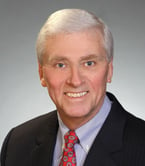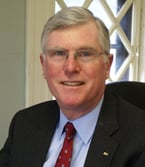-1.png?width=822&name=Featured%20Social%20(1)-1.png)
After more than a decade of supporting private clubs on the journey to strategic governance, we are convinced that it would be impossible to overstate the importance of planning in that process. For those who might question our conclusion, we ask you to consider this passage from Lewis Carroll’s Alice in Wonderland:
Alice: Would you tell me, please, which way I ought to go from here?
Cheshire Cat: That depends a good deal on where you want to get to.
Alice: I don’t much care where.
Cheshire Cat: Then it doesn’t matter which way you go.
Alice: So long as I get SOMEWHERE.
Cheshire Cat: Oh, you’re sure to do that.
In that scene, it’s clear that when Alice set out on her journey she didn't know (and didn't particularly care) where she was going. Because she was ambivalent about her destination, she ultimately found herself stranded at a crossroad. In the context of strategic club governance, we have encountered many boards that operate month-to-month and year-to-year without any idea where they are going (aka without goals and a viable plan for achieving them). To borrow from our Cheshire Cat analogy, those boards are “sure to get SOMEWHERE.” It is just highly unlikely that they will ever make meaningful progress toward achieving the club's vision. Driven by issues of the day, boards without a plan often find themselves stranded like Alice, ambivalent about any true destination and trapped in a circular loop of operational governance where monthly boardroom discussions center on tactical issues such as cover counts or rounds played. The annual agenda is a holistic planning tool that keeps club leaders focused on strategic agenda issues, serving as a roadmap for the board by framing and prioritizing goals for the year that are consistent with the club’s established vision and long-term plans. It also ensures efficient use of time in private club boardrooms where governing bodies typically meet just once a month to conduct the business of the club.
Driven by issues of the day, boards without a plan often find themselves stranded like Alice, ambivalent about any true destination and trapped in a circular loop of operational governance where monthly boardroom discussions center on tactical issues such as cover counts or rounds played. The annual agenda is a holistic planning tool that keeps club leaders focused on strategic agenda issues, serving as a roadmap for the board by framing and prioritizing goals for the year that are consistent with the club’s established vision and long-term plans. It also ensures efficient use of time in private club boardrooms where governing bodies typically meet just once a month to conduct the business of the club.
Developing an annual agenda is a process that begins with the club’s president and General Manager. It will go to the full board for approval before it is disseminated to the committees, the membership, and the leadership team. Once it has been distributed to the full spectrum of club stakeholders, the annual agenda helps set expectations and provides transparency for the year. It serves as a useful framework for the annual meeting and periodic club updates by providing much-needed context for accomplishments and course corrections. It also helps in the recruitment of new board members and provides a baseline for board orientations and retreats.
It is important to establish your desired destination early in the journey. Most boards meet just once a month over the course of the year, so your time in the club boardroom is precious and we encourage you to use it wisely. To learn more about our approach to board orientations and the process of developing and implementing an annual agenda for your club, contact the authors directly or visit us online at www.clubbenchmarking.com/board-services
About The Authors Dave Duval is a member of Charles River Country Club, The Quechee Club, Turtle Creek Club and Portmarnock Golf Club. He served on the board of Charles River Country Club for eight years, including six as Treasurer, before joining the board of The Quechee Club. He served on The Quechee Club board for four years including two as President & CEO. During the course of his club board experiences, Dave architected the long-term funding plans and finances for more than $20 million of capital improvements. He also oversaw multiple membership surveys and governance improvements while communicating frequently about board activities and membership satisfaction. Dave’s professional experience includes public accounting, C-suite management and 20 years as a partner in venture capital partnerships. He is a CPA (retired) and holds a BS in Accounting from Bentley University and an MBA from Babson College. Dave has served on numerous corporate, association and charitable organization boards. Email: dduval@clubbenchmarking.com
Dave Duval is a member of Charles River Country Club, The Quechee Club, Turtle Creek Club and Portmarnock Golf Club. He served on the board of Charles River Country Club for eight years, including six as Treasurer, before joining the board of The Quechee Club. He served on The Quechee Club board for four years including two as President & CEO. During the course of his club board experiences, Dave architected the long-term funding plans and finances for more than $20 million of capital improvements. He also oversaw multiple membership surveys and governance improvements while communicating frequently about board activities and membership satisfaction. Dave’s professional experience includes public accounting, C-suite management and 20 years as a partner in venture capital partnerships. He is a CPA (retired) and holds a BS in Accounting from Bentley University and an MBA from Babson College. Dave has served on numerous corporate, association and charitable organization boards. Email: dduval@clubbenchmarking.com
 Joe Abely is a member of Brae Burn Country Club and The Wianno Club. During his twelve years of board service at Brae Burn he served as Treasurer for six years and President for three. He continues to chair the nominating committee there. Joe also architected the long-term funding plans and finances for more than $20 million of capital improvements during his tenure and prioritized membership satisfaction and communications. In addition to serving on many corporate and tax-exempt organization boards, Joe’s career accomplishments include partnership in a Big 4 CPA firm, CFO/COO/CEO of a publicly traded company and serving as Executive Director of a large charitable organization. He is a graduate of Boston College and holds an MBA from The Wharton School of the University of Pennsylvania. Email: jabely@clubbenchmarking.com
Joe Abely is a member of Brae Burn Country Club and The Wianno Club. During his twelve years of board service at Brae Burn he served as Treasurer for six years and President for three. He continues to chair the nominating committee there. Joe also architected the long-term funding plans and finances for more than $20 million of capital improvements during his tenure and prioritized membership satisfaction and communications. In addition to serving on many corporate and tax-exempt organization boards, Joe’s career accomplishments include partnership in a Big 4 CPA firm, CFO/COO/CEO of a publicly traded company and serving as Executive Director of a large charitable organization. He is a graduate of Boston College and holds an MBA from The Wharton School of the University of Pennsylvania. Email: jabely@clubbenchmarking.com
.png?width=200&height=58&name=MicrosoftTeams-image%20(8).png)
.png)
-1.png)
-1.png)

